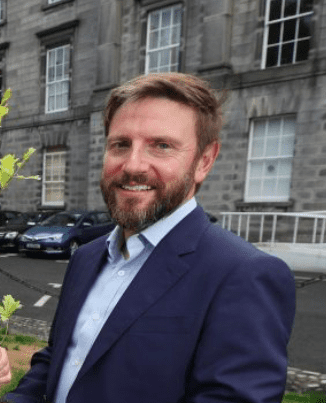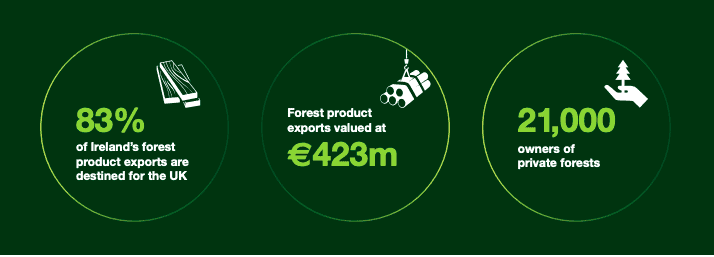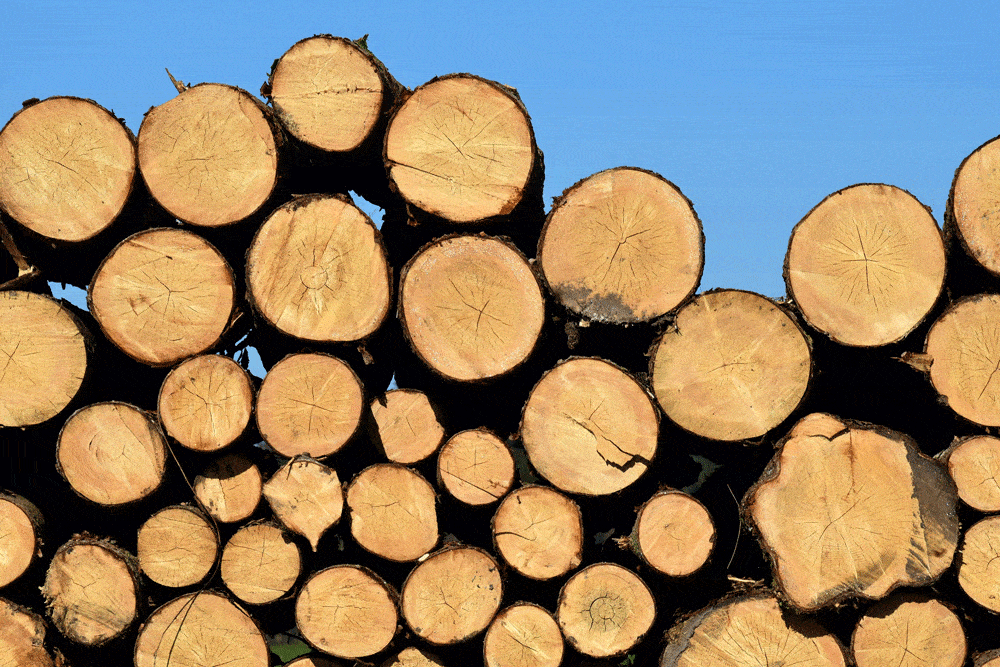This week Ibec, the business lobbying group, launched Forestry Industries Ireland (FII), a new trade association, specifically for the forestry and timber industry in Ireland. Ciaran Fallon, Head of External Affairs at Coillte, the State-owned forestry company, explains the importance of this new venture to the sector.

Ciaran Fallon, Head of External Affairs, Coillte
The forestry industry in Ireland is currently enjoying a period of major capital investment, market buoyancy and substantial growth in wood supply. With a combined turnover of over €800 million, the industry is a major player in the rural and national economies, and it is expected to double in size over the next two decades.
The forestry industry contributes €2.3 billion to the national economy, as well as providing important biodiversity and ecosystem services and recreational resources. The sector supports 12,000 rural jobs throughout every region of the country. With current planting, the supply of wood from Irish forests is expected to double by 2035. Coillte, the State-owned commercial forestry business owns 51% of the Irish forest estate, while 49% is privately owned.
Ibec formed Forestry Industries Ireland (FII) “to achieve a vibrant, sustainable, and competitive forestry and forest products industry for Ireland while developing a full awareness of the benefits of the sector to a wide variety of stakeholders”.

© Forestry Industries Ireland (FII)
“It’s a really positive development,” says Ciaran Fallon, Head of External Affairs at Coillte. “It’s the first time all of the sector has come together—it’s a sector that has in the past been fragmented and not very good at telling its story.”
FII will bring together stakeholders including forestry companies, sawmills, and timber product companies, and commit to encouraging the highest standards of competitiveness, climate action, and sustainability to underpin long term growth across the sector.
Responding to press which had suggested Brexit anxiety was the reason for the launch of FII, Ciaran acknowledges that while “Brexit certainly is in the foreground and it will be a significant challenge but that it’s not the reason we came together.”
He posits that “Brexit was certainly a mobilising event that got people talking to each other and once people got together they got talking about what they could do to better tell our story.”
The forestry industry in Ireland is only about 90 years old; as Ciaran recounts, forest cover was at about 0.6% in Ireland when the State was formed and the Government set about rectifying that situation from the 1930s onwards, to build an industry and provide timber supply for construction.
“By international standards we have a very young forestry sector and it is just beginning to mature and come of age,” he notes.
“We still have lowest level of forest cover in Europe at 11%,” he continues, adding, “but we have a very productive sector because we have the perfect conditions and climate for growth.”
The relative youth of the sector brings another big advantage, as Ciaran reveals: “Because the sector is so young it is technologically very advanced. We have managed to leapfrog over generations of older technologies.”
This leaves the Irish forestry sector in a very healthy position and poised on the cusp of an exciting growth period.
For more information see www.forestindustries.ie







